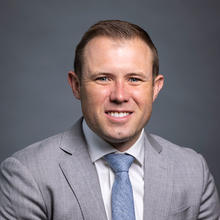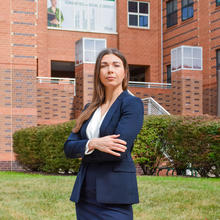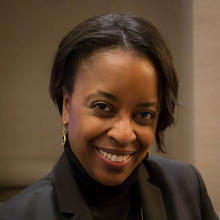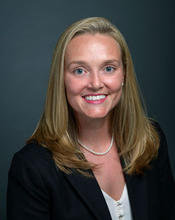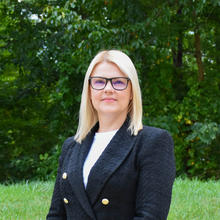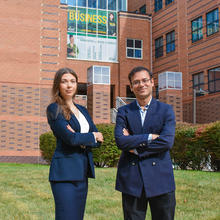The Costello College of Business at George Mason University is an acknowledged center for global business research.
Faculty take a multidisciplinary approach, with the goal of ensuring that business can be a force for the greater good.
Faculty publish in leading business journals on wide-ranging global business issues, are cited by the press, and are actively engaged in making discoveries to address a wide set of societal and institutional challenges.
Impactful Scholarship
Three pillars define the real-world impact of Costello College of Business thought leadership:
Ensuring Global Futures
Safeguarding our planet and societies from the crises identified in the United Nations Sustainable Development Goals (SDGs). Recent highlights include:
- Are Electric Cars Really Green? mic.com
- CPG Can No Longer Afford to Harm the Planet AdWeek.com
- Supporting the Honey Bee to Make the World a Better Place School of Business News
- Embedding the SDGs into Business Education The PRME Blog
Digital Transformation of Work
Preparing global organizations and professionals for the massive technological changes that are reshaping business.
- Facilitating a Paradigm Shift: An Acquisition Playbook for the Information Age School of Business News
- As Offices Reopen, Hybrid Onsite and Remote Work Becomes Routine SHRM.org
- How to Manage Performance Evaluations in the Work-From-Home Era New York Times
- Employees Are Working An Extra Day In Unpaid Overtime Each Week Forbes.com
Entrepreneurship and Innovation
Fostering the creative problem-solving skills needed for success in an increasingly unpredictable world.
- Using Geospatial Technology to Promote Economic Development of Africa School of Business News
- Prince Harry isn't the first famous name in tech, but his role at S.F. startup is rare San Francisco Chronicle
- For $40/Month, Equinox's Variis App Is Now Accessible to All Well+Good
Costello College of Business Faculty Research
- January 8, 2024A Mason professor unpacks the complex, nuanced impact of the “revolving door” between industry and regulators in the accounting world.
- January 5, 2024Even famously neutral news organizations are not immune to the pressure to compete for clicks in the increasingly partisan online marketplace.
- January 2, 2024Despite the fears of regulators and skittish investors, clear and accurate signals of cryptocurrency quality may be hidden in plain sight.
- December 11, 2023Open-source learning materials promise to democratize education, while reducing the financial burden on students. But how can schools bring faculty on board?
- December 8, 2023No matter who you are, feeling threatened in your identity is bad for your well-being—and your career.
- December 6, 2023What if you could outsource any computing task to the crowd without risking an epic fail? A newly developed set of technological tools could make this a reality.
- November 6, 2023With the rise of online learning, cheating has become easier than ever. And perhaps more prevalent as well, suggests one Mason accounting professor.
- October 18, 2023A disproportionate number of the most innovative CEOs hail from U.S. counties with a frontier history.
- October 11, 2023Can wearable tech resolve the crisis of underemployment among neurodiverse individuals? A multidisciplinary Mason research team is about to embark on a major study to find out.
- October 2, 2023The economic balance is shifting toward private equity. But accounting scholars are still working from an outdated playbook.
- September 27, 2023Online technology has made real-time performance feedback a workplace reality. But a pair of Mason professors have found out about a major bias in the system.
- September 18, 2023When government contractors merge, comparing their customers can predict a lot about how investors will respond to the deal.

